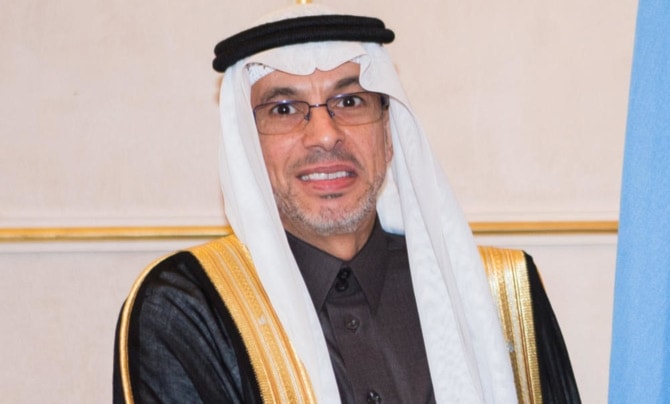Electing Saudi Arabia to chair UN women's commission causes outrage
No vetting is required to be elected to the commission and there are no certain standards for gender rights to be met either.
-

Abdulaziz al-Wasil, Saudi ambassador to the UN (UN Watch)
Saudi Arabia is due to lead a United Nations body for women’s rights for the 2025 session, causing outrage among rights groups that the Kingdom had an “abysmal” past on women’s empowerment, the Saudi state news agency confirmed on Wednesday.
Saudi Arabia’s ambassador to the UN, Abdulaziz al-Wasil, was elected chairman of the Commission on the Status of Women, as the news agency stated that the country’s new chairmanship “confirmed its interest in cooperating with the international community to strengthen women’s rights and empowerment."
However, Amnesty International’s Deputy Director for Advocacy, Sherine Tadros, said that Saudi Arabia had an “abysmal record when it comes to protecting and promoting the rights of women," arguing that there was a “vast gulf” between the UN commission’s aspirations and the “lived reality for women and girls in Saudi Arabia.”
Saudi Arabia was anticipated to acquire the chairmanship, which typically lasts for two years, especially since there is no vetting required to be elected to the commission and no certain standards for gender rights need to be met either.
Louis Charbonneau, a director at Human Rights Watch, said in a statement in response, “A country that jails women simply because they advocate for their rights has no business being the face of the UN’s top forum for women’s rights and gender equality."
Read more: Saudi laws strip women of children custody, leave them stranded
"Saudi authorities should demonstrate that this honor was not completely undeserved and immediately release all detained women’s rights defenders, end male guardianship and ensure women’s full rights to equality with men," he added.
When money pays and plays
However, according to the Saudi news agency, Saudi women "have been granted the means of empowerment and become an active partner in the nation’s development and elevation."
Still, human rights groups note that women, for example, still require a male guardian's permission to drive a car and face discrimination when it comes to custody disputes, despite claims that this is not the case.
Since Mohammad bin Salman became the de facto ruler of Saudi Arabia in 2017, the country has jailed hundreds of activists, bloggers, academics, and others for political activism, demonstrating almost zero tolerance for dissent despite international condemnation of the crackdown.
Muslim academics have been executed, and women's rights activists have been imprisoned and tortured, as the Kingdom's authorities continue to deny freedom of expression, association, and belief. Over the past years, Riyadh went as far as redefining its anti-terrorism laws to target activism.
One example is Loujain al-Hathloul who campaigned against the driving ban and was imprisoned from 2018 until 2021 and is additionally banned from traveling outside the Kingdom.
Another is the women's rights activist Salma Al-Shehab who was sentenced to 34 years of imprisonment after the Kingdom widened its repressive measures against pro-democracy campaigners following the easing of its isolation from the international community after the brutal killing of journalist Jamal Khashoggi.
According to Human Rights Watch, Saudi women's rights activists and others detained in 2018 were subjected to electric shocks, beatings, whippings, and sexual harassment.
Last year, in a World Economic Forum report on the global gender gap, Saudi Arabia ranked 131 out of 146 countries.
This comes to serve as a measure of double standards since Iran was removed from the same commission in 2022 by a US-led vote after Tehran’s protests that year, knowing that this marked the first time a member state was removed from the UN women's body.
But it shall come as no surprise given the conditions of political play between Saudi Arabia and the West as opposed to Iran.

 4 Min Read
4 Min Read










